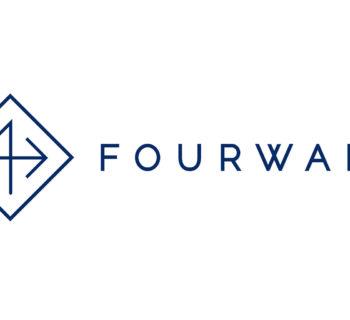
Are you an artist who has considered selling his old music catalog and still make money from it? Everyone seems to know something of the value of selling their publishing, but not everyone recognizes the intricacies of selling their writer’s royalties. I must have Googled this topic a hundred times, but there really is very little information out there. I believe it is such a specialized topic, that few people have travelled down this road. I’ve done research in the past couple years, however, and found out some enlightening things. For one, the writer’s royalty share of, say, ASCAP, SESAC and BMI, can be a very valuable commodity to outside investors. Because of the huge swings in the stock and real estate markets, more and more investors, both independent and corporate, are venturing into attaining entertainment royalties, which don’t fluctuate during recessions. But with the good comes the bad. I want artists to be aware of whom to steer away from and what is a sensible deal. So read on if you’re interested in some friendly advice for artists who want to earn money from old catalog.
By Brian Tarquin
Understand Breakdown of Royalties to Sell
You should understand that a song has two sides as far as public performance royalties go. Those are collected by what is commonly referred to as PROs (performing right organizations) in the United States––ASCAP, BMI, SESAC. Now you have writers’ and publishers’ sides that are valued the same, as far as royalties paid by the PROs. In other words, if a song is placed on a daytime TV show and earns $130 for the writer, then the publisher side of this song for the same placement will earn the same amount.
So from the standpoint of the performance royalties, they are basically of equal value (don’t confuse this with sync fees or mechanical royalties). Even if you don’t control the publishing side of the song or even the copyright, you can still sell your writer royalty stream.
For example, say you have a catalog of songs that have been earning an average of 25k per year, the common sales multiple is usually four to five times the average. Hence this catalog would be worth 100k to125k. There are some companies/individuals that may value the catalog a little higher or lower depending on the intrinsic value they put on the catalog; for example, hit songs, television themes, etc. At the end of the day it really depends on how eager an investor is to acquire the catalog.
Know the Sales Breakdown
Generally there are two ways of earning money on your catalog:
• an advance against future royalties
• the actual sales of your royalties
There are a couple of ways the advance works. One is when a company will offer a modest advance, usually no more than the total yearly income. They collect 100 percent of your writer’s catalog until the advance is recouped, plus a very high interest rate. Investment bank companies have been known to offer high advances plus a high interest rate, and then take 50 percent of the writer’s side for life.
I have been offered this type of deal and advise to keep clear of it because they are not buying that 50 percent of your writer’s side, just giving you an advance/loan and will collect the advance 100 percent until recouped––plus hitting you with a high interest rate (in the 20 percent range) while taking 50 percent of your writer’s side. Absolutely ridiculous!
The only way that model would work is considering the large advance as the purchase of the 50 percent writer’s and there would be no recoupment at all. Hence from that point further they collect 50 percent of the writer’s.
My advice is the second option––selling the catalog outright. It is the best and quickest way to make money from your older catalog. (For the right price, of course.) Plus you don’t have to sell 100 percent of your writer’s either; you may only want to sell 25 percent or even 10 percent, but keep in mind the purchase price will drop with the smaller percentages. You have no “so-called” investment partners with the buy-out model and you are not obligated to pay back an advance via recoupment, which in some cases leaves you liable for the unrecouped amount if not paid back within a period of time.
Work With People You Can Trust
As you can imagine, there are certainly a lot of scammers out there; so be aware and stay clear of them. I must admit that this was a very scary thing for me when I first investigated the possibility of selling of my writer’s royalties. I found out a lot about how little people in general know about royalties (outside of the music community).
Based on my experience, I advise you to stay away from investment bankers, equity companies, oil companies and “so-called” family trusts. These people are just trying to get a leg in the music business and do not understand the first thing about music royalties. Believe it or not, I found myself explaining to these people how ASCAP, SESAC and BMI work and how they collect monies from the various broadcast licensors.
It seems to me that if you are going to invest into a business you would at least know how the hell it works, even just the basics. I had been offered a few of these deals from companies and when I accepted them after negotiations, they were abruptly pulled off the table, and believe me it happened more than once. From my perspective, this behavior came across as very shady and dishonest.
The good news is there is a new company out there that does sell writer’s royalties and has had success doing so in the past year. The company is called Royalty Exchange, which is an online auction, run by entrepreneur Sean Peace. He has good financial connections that can hook writers up with the right buyers. I must warn you that this is not an overnight sale––it can take months to sell a catalog or not sell at all––but still, in my particular case, Sean proved to be committed and closed the deal. What worked for me is that he had the contacts in the money world. I have dedicated my life to all facets of the music industry, from composer to artist to producer, and never had ties with the banking “suits” of the world, so Royalty Exchange was the perfect connection for me.
The bottom line is to go with your instincts––do your research before you sign on the dotted line. And, as always, if you’re not absolutely sure about something, get a lawyer to look it over.
Micro-Bio: Winner of multiple Emmy Awards, composer Brian Tarquin has established himself as a top-rate TV composer-guitarist. In 2006 SESAC honored him with the Network Television Performance Award. Tarquin produced and composed the Guitar Masters series, trading licks with such guitar greats as, Leslie West, Steve Morse, Billy Sheehan, Frank Gambale, Andy Timmons, Chris Poland (Megadeth) and Hal Lindes (Dire Straits). Visit http://tvfilmtrax.com.













